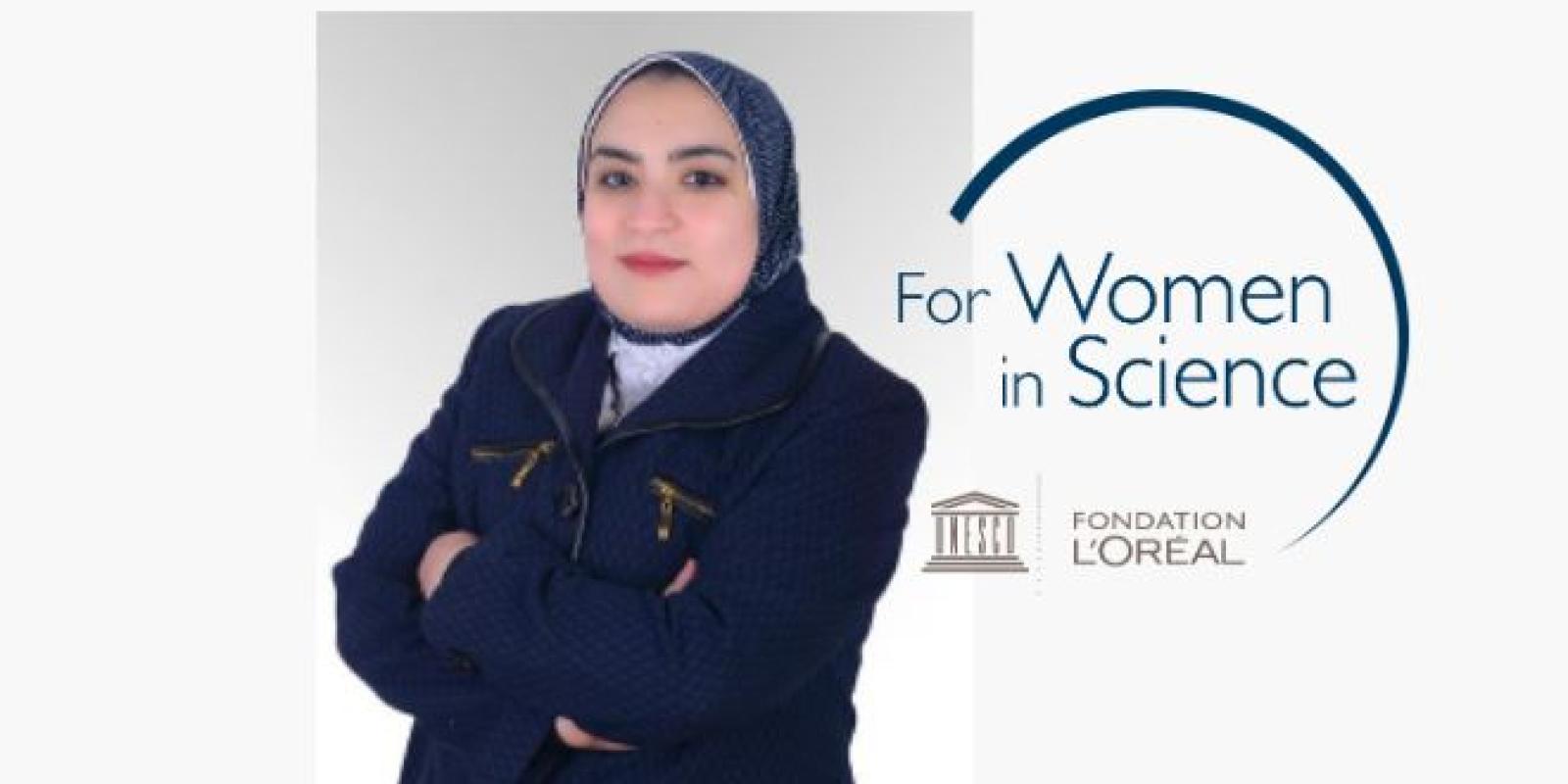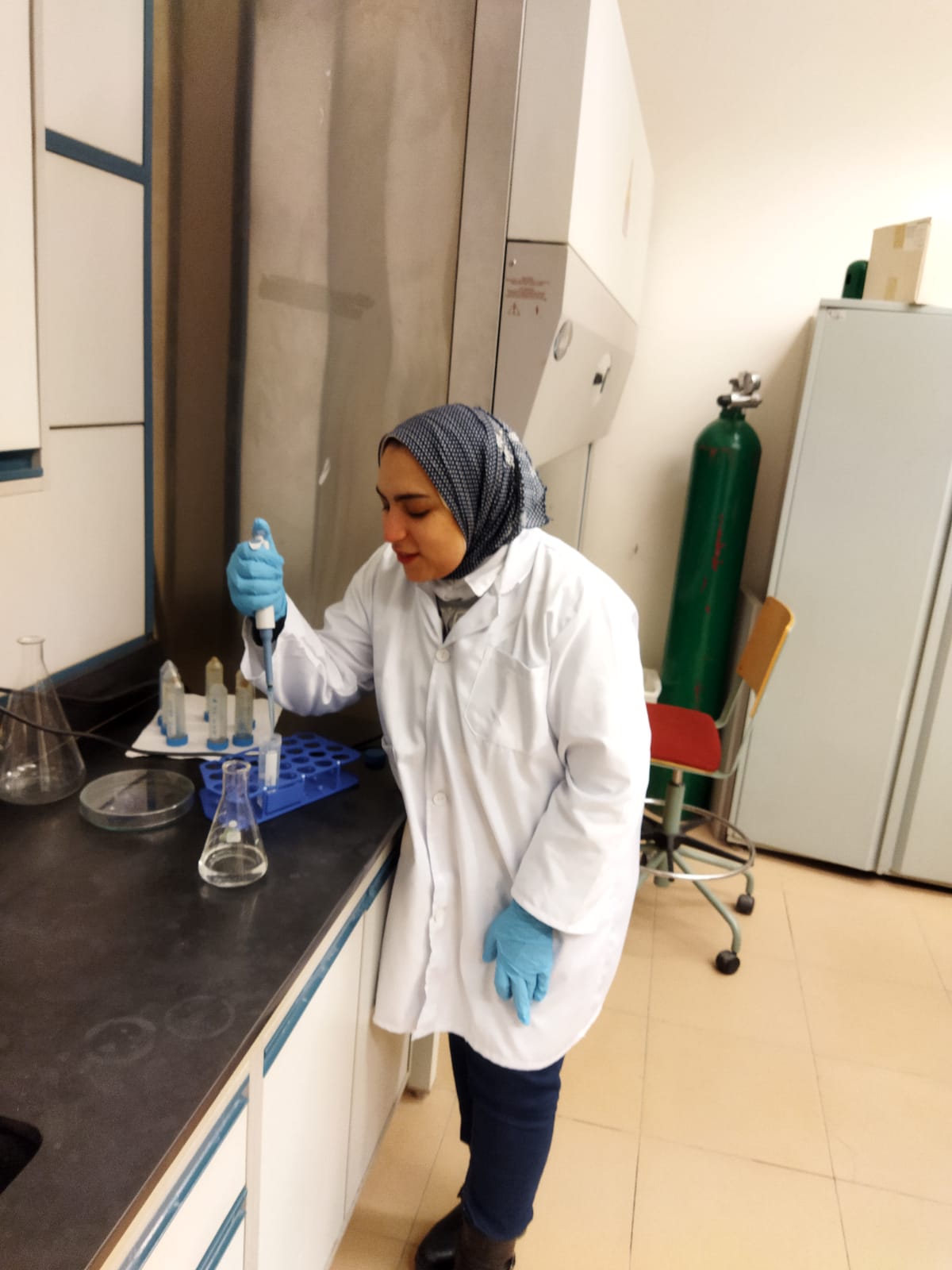
PhD Student Receives L’Oréal-UNESCO Young Talented Scientist Award
Sarah Abdelkader (MSc ‘20), an environmental health PhD student at AUC's Institute of Global Health and Human Ecology (I-GHHE), has won the prestigious L’Oréal-UNESCO Young Talented Scientist award for Egypt, for her innovative work in sustainable agricultural wastewater treatment.
Abdelkader’s research, conducted with Ahmed El-Gendy, associate professor of Construction Engineering, explores the possibility of an onsite treatment unit to treat agricultural wastewater. Since many rural villages in Egypt don’t have reliable sewage systems or a treatment plant for agricultural wastewater, developments in wastewater treatment are crucial.
“Nationwide, agricultural wastewater is often polluted, what with municipal and industrial waste dumping agricultural drainages—smaller villages [often without proper treatment systems] are particularly vulnerable to this,” says Abdelkader.
The contaminants from industrial wastewater trickle down to become environmental and water pollutants, affecting soil quality, marine life, and entire food systems. The one major way to break this cycle, she explains, is by resolving water contamination—although the issue is complex to tackle, given its environmental, social, health and economic layers that have wide-ranging, accumulating consequences.
“Water contamination is a highly pertinent topic, particularly since Egypt suffers from water scarcity; we are below the water poverty line," she said. "Solid waste management and water contamination are tied to food insecurity and adverse health effects, all leading to low production and low economic growth.”
Abdelkader's treatment unit is uniquely based on filtration and absorption; it's onsite and mobile, and can be placed directly in sewage systems rather than treatment plants. Farmers can thereby access treated water without the otherwise lengthy process of wastewater going through a treatment unit, making it far more efficient than typical agricultural wastewater management processes.
The process she proposes is also more economical than other alternatives.

As a first-year PhD student, Abdelkader is keenly interested in exploring these links between wastewater treatment and other economic development or environmental themes in her work, particularly public health.
“My master’s was in environmental engineering, and my research tackled industrial wastewater treatment using low-cost materials like solid waste,” Abdelkader elucidates, adding that her previously published MSc thesis excerpt, which she also completed at AUC, helped her qualify for the L’Oréal award. “I chose to earn my PhD at I-GHHE because I wanted to see the situation from another angle—rather than solely that of engineering—and to study the effect of these contaminants.”
Abdelkader also lauds the “throes of amazing, promising” research at AUC deserving of public attention, and stresses her view that interdisciplinary collaboration would yield a greater impact.
She received her award at the inaugural L’Oréal-UNESCO Women in Science Young Talents Awards Ceremony for MENA held on February 9 at Expo 2020 in Dubai.
“When I first received the email [about the award], I didn’t believe it—I thought it was a scam! It was such a wonderful experience, and I didn’t see it coming because I thought my own work is comparably a blip in the deep sea of solid homegrown research authored by talented researchers in Egypt,” Abdelkader laughs humbly.
She also describes her intellectually stimulating experience of meeting academics from around the world at the awards ceremony in Dubai as “surreal”—noting that it opened her eyes to new ideas and perspectives.
Women remain persistently underrepresented in STEM subjects, a disparity that initiatives like the L’Oréal-UNESCO For Women in Science Program aim to reverse by boosting the female representation in STEM. The L’Oréal UNESCO Young Talented Scientist award celebrates rising talent and promising women-led research across STEM subjects.
Despite global gender representation disparities in the STEM field, close to 50% of STEM graduates in Egypt are women, Abdelkader points out—women accounted for 47.2% of Egypt’s university science students in 2018-19 according to CAPMAS data. Yet, behind this veneer of equity that the stats allude to, women scientists are far less often represented in STEM careers and research, and their work is often not platformed in these still stubbornly male-dominated fields.
“I hope my work has a positive impact on the Egyptian research community and motivates female researchers particularly, helping people realize that their research can indeed serve and improve their communities,” Abdelkader says. “I also hope that women—and other underrepresented groups—realize that they can achieve all their dreams, despite persistent structural inequalities.”
